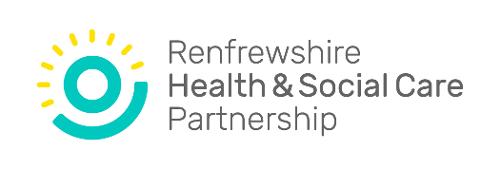You can help prevent or stop Financial Harm if know how to spot the signs and how to report concerns.
Financial or material abuse is wide-ranging. It includes: theft; fraud; scams; cybercrime; exploitation; or pressure in connection with wills, property, inheritance or financial transactions. Financial Harm includes the misuse or misappropriation of property, possessions or benefits. Financial harm can encompass theft; forgery; misuse of Power of Attorney, DWP appointeeship, or guardianship; as well as denying access to funds. All of these types of harm should be reported! Reporting financial harm is a good way to protect yourself, protect others and prevent the same harm happening again.
Financial Harm - The Warning Signs
Scams
- Lots of mail/small packages stamped with 'you've won a draw', open to claim prize', 'send fee to win'.
- Lots of catalogues needing cheques sent along with personal details.
- Householder has large stock of useless items, 'unusual' vitamins, diet pills, healthcare aids/supplements.
- Person reluctant to discuss mail, telephones calls, and/or items in the house and where they came from.
- Legitimate household bills not being paid.
- Little or no food in the house.
- Increased monthly outgoings due to 'credit agreements' that are difficult to stop.
- Receipts for considerable sums for what might be considered unusual methods of payment - iTunes, shopping vouchers, PayPal etc.
Financial Abuse
- A lack of food in the house
- Unexplained disappearance of funds or valuable possessions, such as art, silverware or jewellery
- Unexplained debt
- Withdrawing significant sums from the bank or post office
- Numerous unpaid bills, or overdue rent, when someone else is authorised to manage an individual's money
- Another person using the adult's possessions, bank account or property without his or her informed consent
- Work getting done on the house or garden that is unusual
- Someone taking out extra loans
- Individual is always accompanied by people to make withdrawals
- Lack of access to own money
- Poor accommodation; lack of repairs, etc.
- Signatures on cheques or contracts that do not resemble the person's signature, or signed when the person cannot write
- Sudden changes in bank accounts, including unexplained withdrawals of large sums of money by a person accompanying the older person
- The inclusion of additional names on the person's bank account
- Abrupt changes to, or the sudden establishment, or wills
- The sudden appearance of previously uninvolved relatives claiming their rights to a person's affairs or possessions
- The unexplained sudden transfer of assets to a family member or someone outside the family
- Unusual concern by someone that an excessive amount of money is being expended on the care of the person
- Lack of amenities, such as TV, toiletries, clothing, etc. that the person should be able to afford
- Deliberate isolation of person from friends and family, resulting in the caregiver alone having total control
Perpetrators can be people who are close to the adult, including family, friends or care agencies. This could be someone who has DWP Appointeeship, Power of Attorney or Guardianship. Domestic abuse in intimate partner relations extends beyond physical abuse and the definition includes coercive control, which includes financial abuse. If someone is abusing their relationship to take or control money, whether done as a deliberate criminal act or through a misplaced belief that authority has been granted to do so, this should be reported.
If the victim of financial harm is affected by disability, mental disorder, illness, or physical or mental infirmity, which makes them more vulnerable to being harmed then safeguarding steps may be available under Adult Support and Protection legislation.
What to do if you suspect financial harm:
Report to:
- Police Scotland - 101 (frauds, scams, cybercrime, doorstep crime) or 999 in an emergency
- Renfrewshire Council Adult Social Work Services - To report concerns about an adult or yourself, or to make an Adult Protection Referral - 0300 300 1380
- Citizens Advice - 0141 889 2121
- Action on Elder Abuse Scotland Helpline - 0808 808 8141
- To report a Loan Shark - 0800 074 0878
For more information about scams you can check out: http://www.scotland.police.uk/assets/pdf/174967/The-Little-Book-of-Big-Scams?view=Standard




